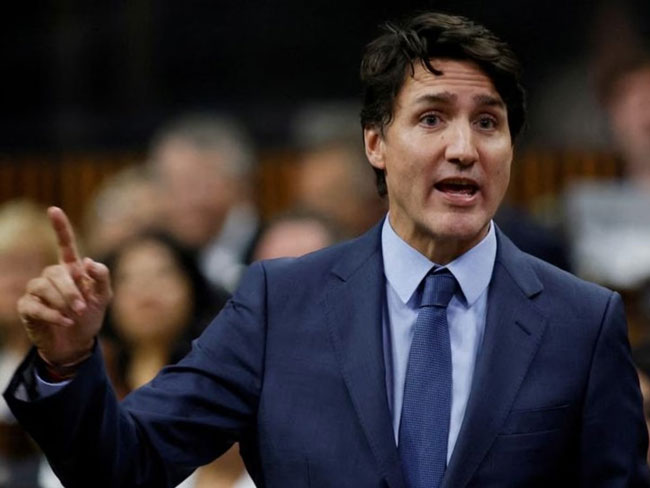Justin Trudeau, once counted among the most youthful, smart, and good-looking world leaders, captivated people with his modern outlook and unique governance style. However, few would have predicted that his political journey would end with him stepping down as Prime Minister of Canada. As his popularity faded and internal opposition mounted, Trudeau was compelled to resign. Ironically, the very policies that defined his career ultimately contributed to his downfall.
Trudeau acknowledged that he now had to fight battles within his own party. While he will continue as Prime Minister until a successor is chosen, Trudeau admitted that he is no longer the best option for Canada’s future. The demand for his resignation gained momentum after Finance Minister Chrystia Freeland resigned, followed by other cabinet ministers. Eventually, Trudeau had no choice but to step down.
From Nightclub Bouncer to Prime Minister
Justin Trudeau’s political career is as fascinating as his personal journey. Born to Pierre Trudeau, who served four terms as Canada’s Prime Minister, Justin followed in his father’s footsteps to become the 23rd Prime Minister. His early life, however, was marked by challenges, including his parents’ divorce when he was just six years old.
At 11, Justin visited India with his father and met then-Prime Minister Indira Gandhi. He later earned a degree in English Literature in 1994 and pursued teaching training at McGill University. Before entering politics, Trudeau worked as a nightclub bouncer in Whistler and later as a French and Mathematics teacher.
At 45, when he first contested the national elections, his opponents mocked his age, but Trudeau not only led his party to victory in 2015 but also formed a government in subsequent elections, despite failing to secure a majority.
Progressive Policies and Challenges
Trudeau became Canada’s second-youngest Prime Minister and gained recognition for his progressive views. He advocated for environmental sustainability alongside industrial development and championed immigration reforms. His cabinet was notable for its gender equality, with equal representation of men and women. He also legalized marijuana and imposed a carbon tax on industries.
While these policies earned him a reputation as a modern leader, they also became points of contention. Trudeau’s stance on immigration and diversity alienated some sections of the electorate, especially as many countries were tightening their immigration policies. The worsening economy and rising inflation further eroded his popularity among Canadians.
The Fallout with India
Trudeau’s relationship with India significantly impacted his political fortunes. His open support for Khalistani separatists strained ties with New Delhi. This stance led to attacks on Hindu temples and communities by Khalistani groups, tarnishing his image. India’s repeated demands for evidence to substantiate Trudeau’s accusations against it highlighted his lack of credibility on the global stage, further damaging his reputation.
A Tumultuous End
Justin Trudeau’s legacy is a mixed bag of achievements and controversies. His modern policies, which once brought him to power, became liabilities as economic challenges and political missteps alienated his supporters. As he steps down, Trudeau leaves behind a political career filled with lessons about the complexities of leadership in a changing world.




